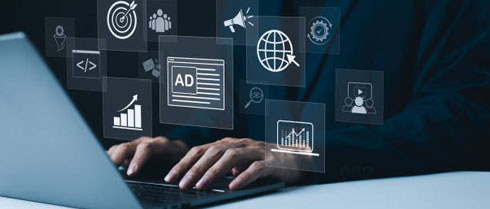Content Library
Current Tenders
Tender1013
TendersTime1013
Last Date of Submission
09 March 2026 at 11:00 AM
Tender1012
TendersTime1012
Last Date of Submission
09th March 2026
Tender1011
TendersTime1011
Last Date of Submission
10-Mar-2026 03:00 PM
Tender1009
TendersTime1009
Last Date of Submission
04 March 2026 – 01:00 PM
Tender1008
TendersTime1008
Last Date of Submission
16/03/2026 (up to 06:00 PM)
Tender1007
TendersTime1007
Last Date of Submission
24-Feb-2026 03:00 PM

Top News
Latest Blogs
 (1).png)
Did you know? Over ₹30,000 Crore is currently available under the District Mineral Foundation Trust (DMFT)
Unlocking the ₹ 30,000 Crore Potential in DMFT for Mining-Affected Communities

PMKVY 4.0 - Skill Development Project
NSDC are writing to inform you that the competent authority has approved the continuation of Pradhan Mantri Kaushal Vikas Yojana (PMKVY 4.0) Beyond 31st July 2024. The scheme will now continue until 31st March 2025.

Prepaid Death, Unlimited Love: A Lesson from a Crematorium in Pune
By SkillCouncils.com Editorial Team

**Is NAPS Transforming India’s Skill Landscape — or Becoming a Scam?
A Deep Impact Audit of India’s Apprenticeship Ecosystem**
.png)
PMKVY Under the Scanner: When India’s Flagship Skill Scheme Failed Its Own Promise
₹14,000+ crore spent. Over a decade of implementation. Yet the core question remains unanswered: did Pradhan Mantri Kaushal Vikas Yojana (PMKVY) skill India for jobs—or merely generate certificates?

Skill Development Scams in India: An Evidence-Based Overview (2015–Present)
Skill development has been a cornerstone of India’s employment and economic growth strategy over the past decade. Flagship initiatives such as the Skill India Mission, Pradhan Mantri Kaushal Vikas Yojana (PMKVY), and various state-led skill development programs were designed to bridge skill gaps, improve employability, and create a future-ready workforce.















 has directed all Training Providers and bidders under RFE 2025 to submit pendingmissing documents within the stipulated timeline_SKillCouncils.png)




